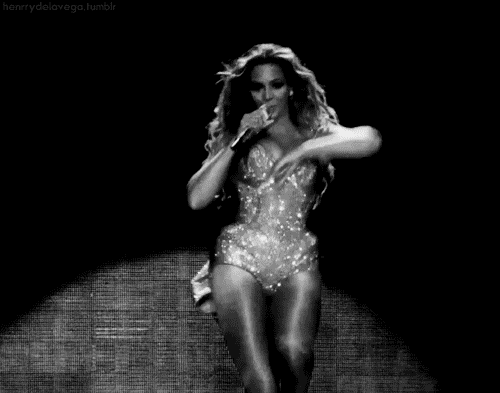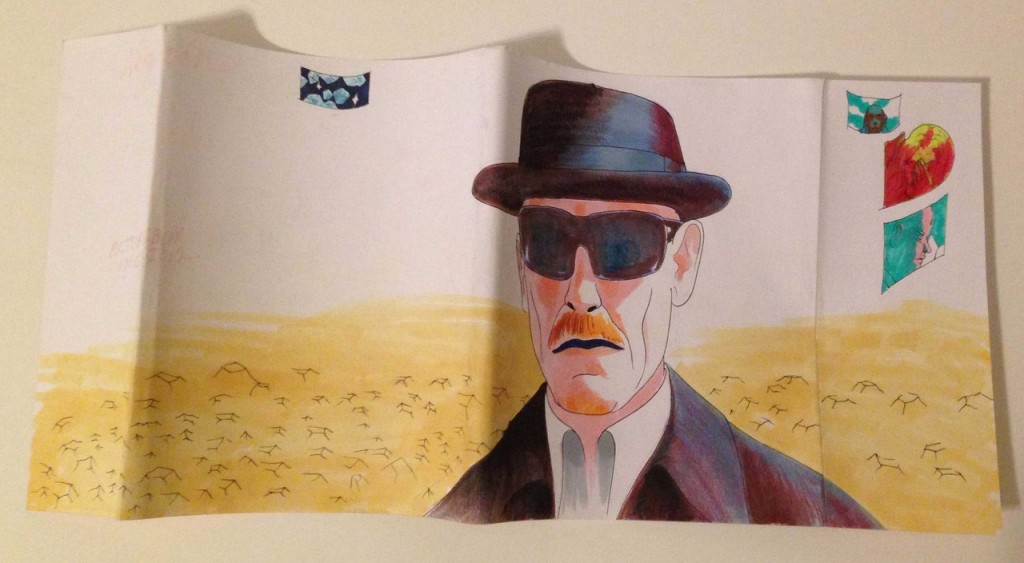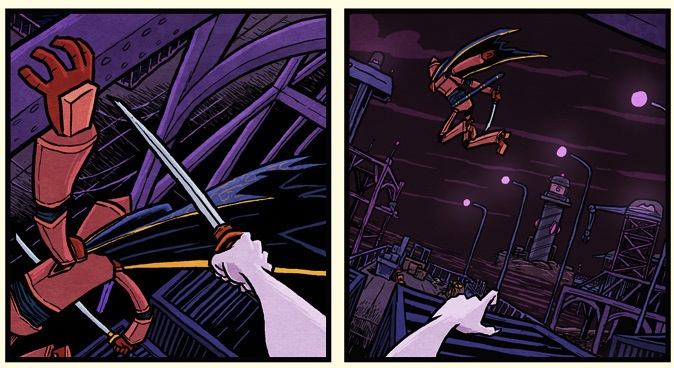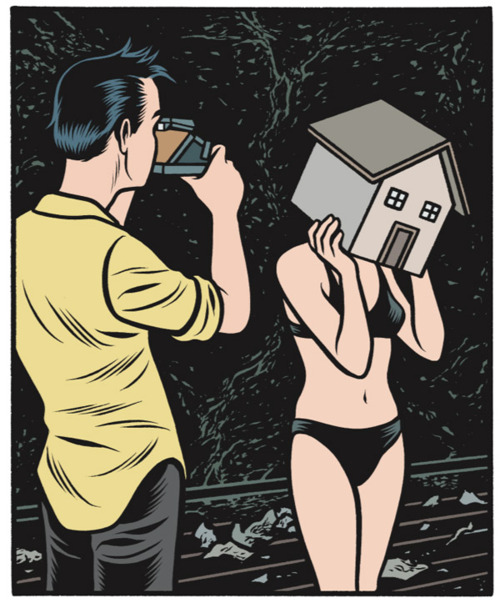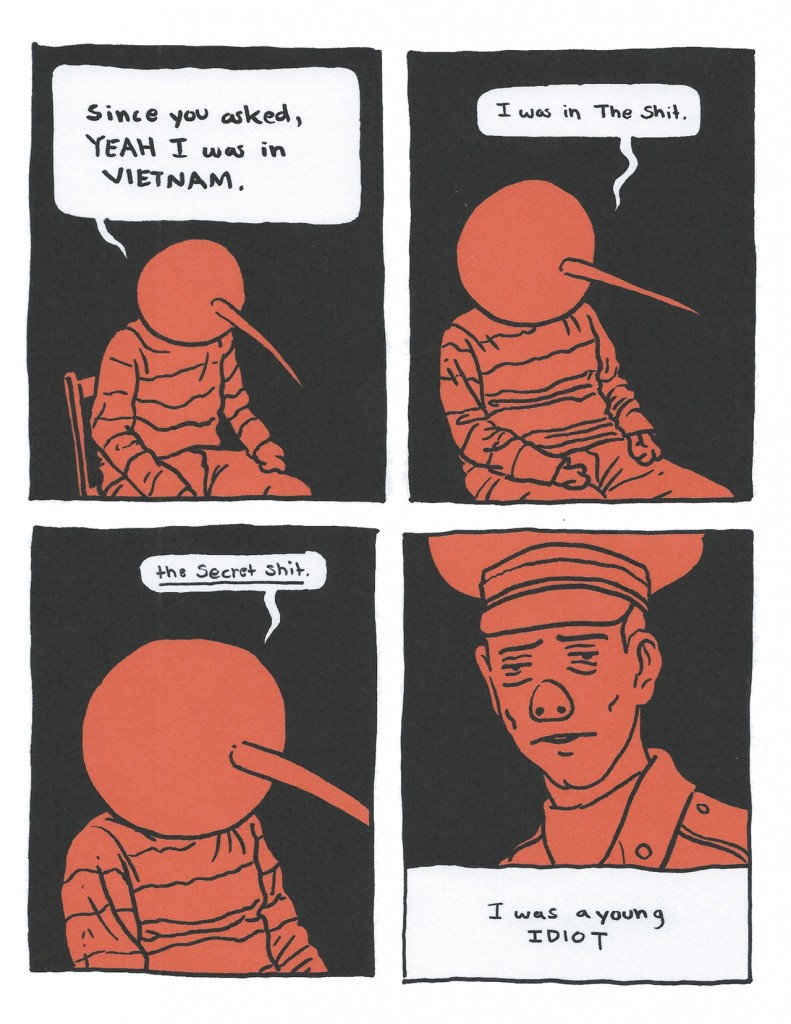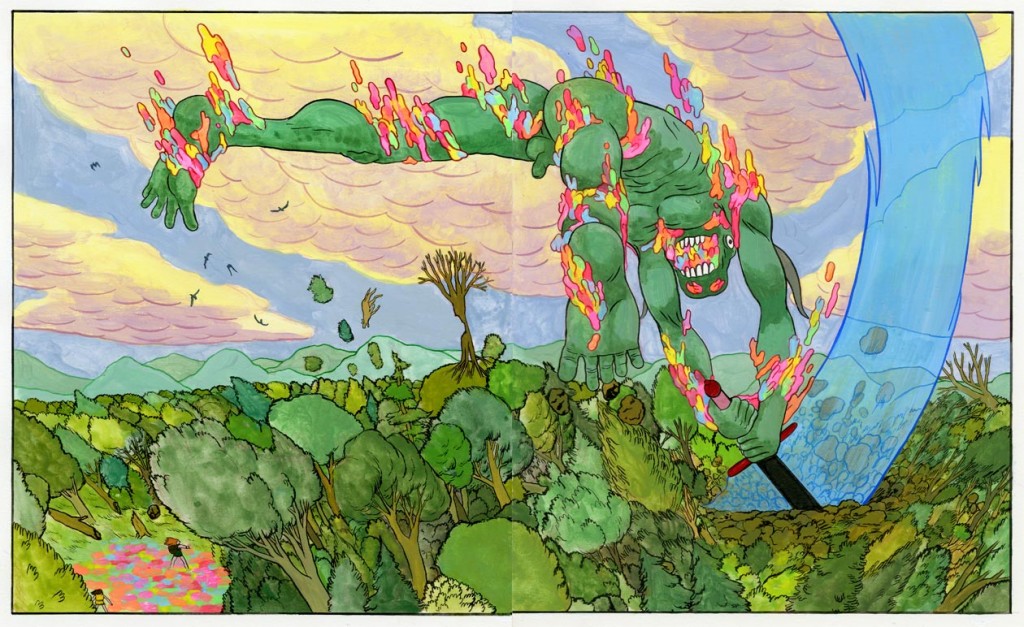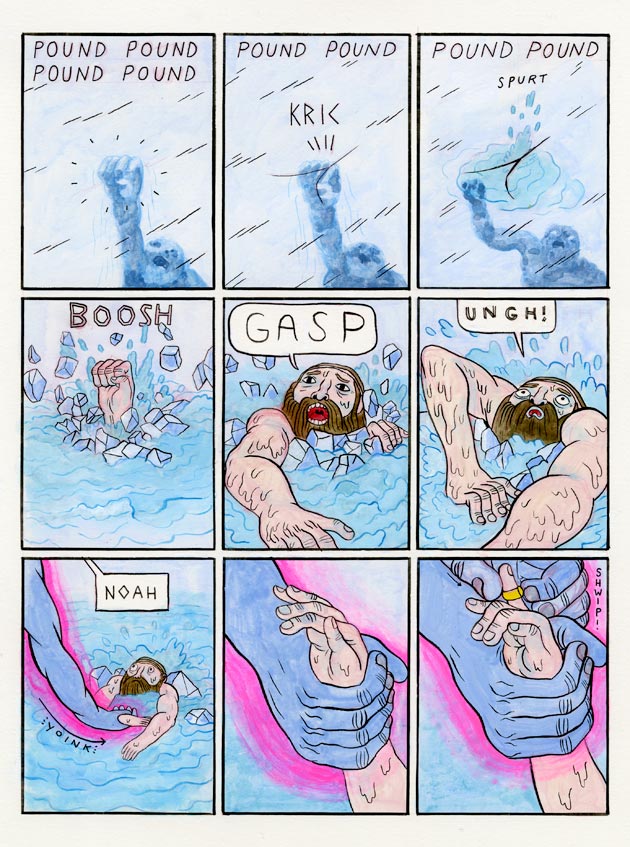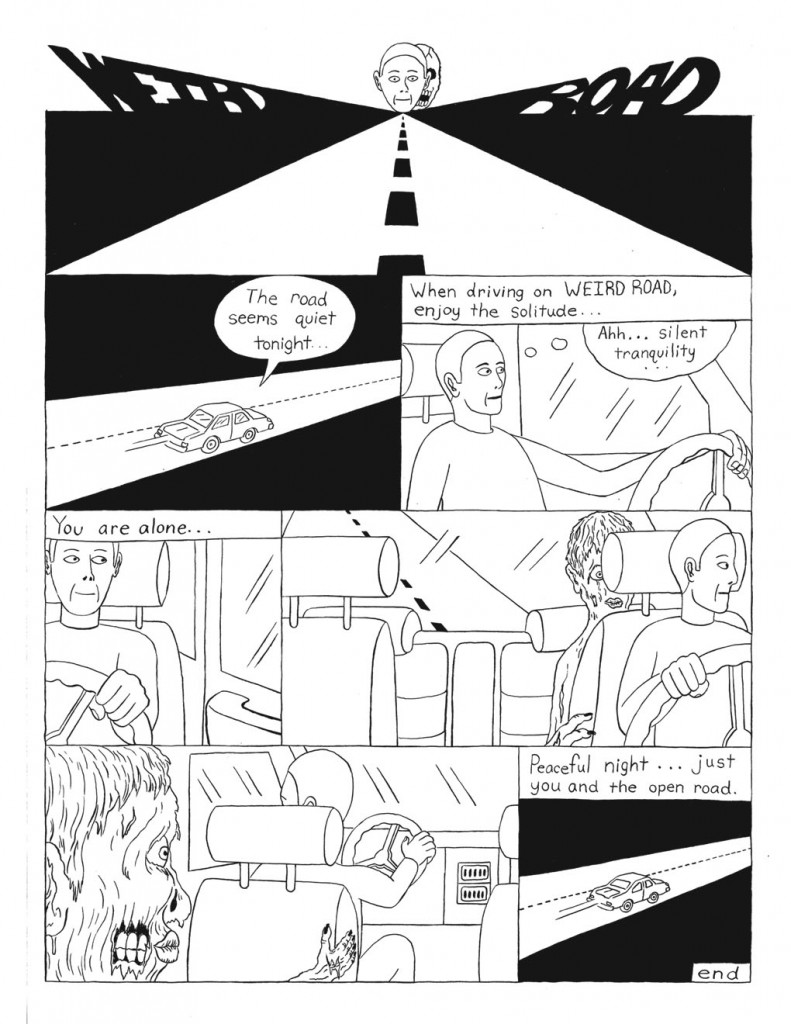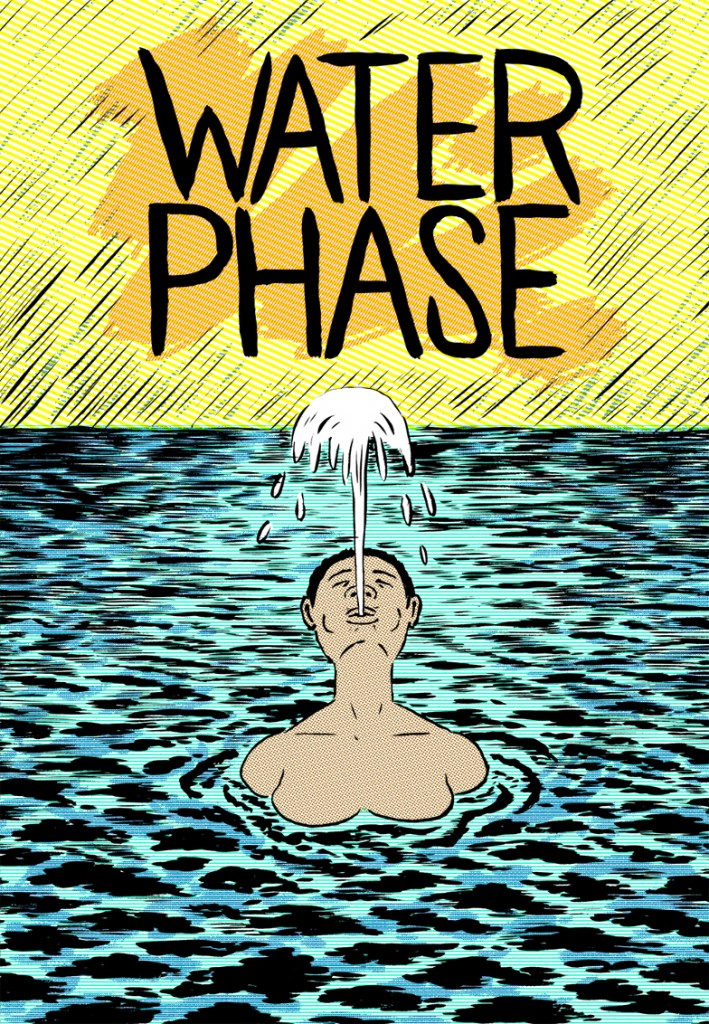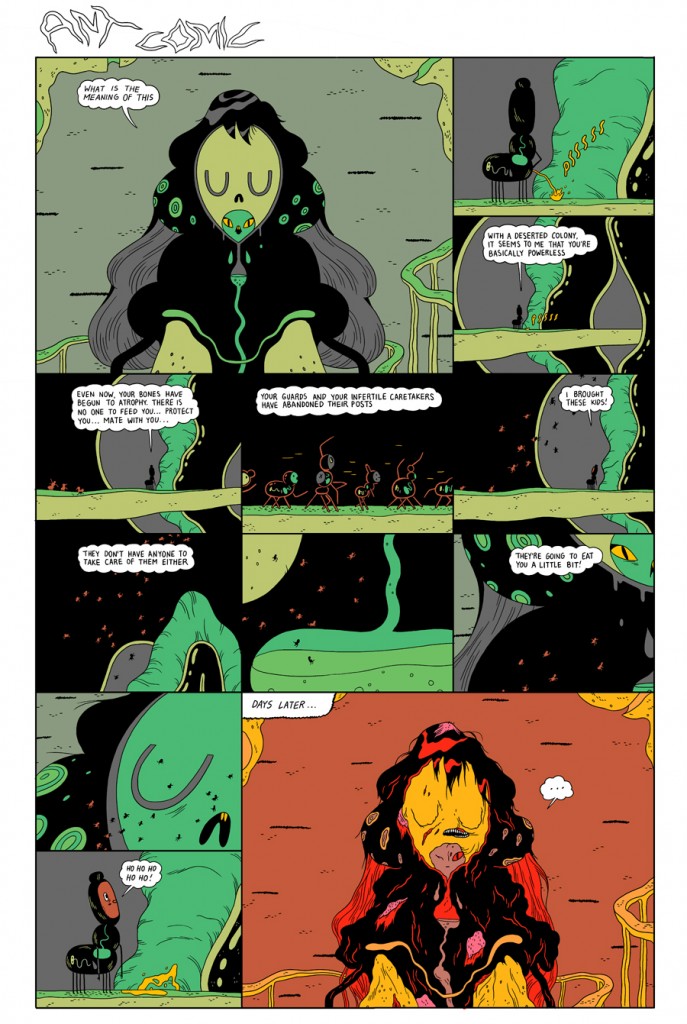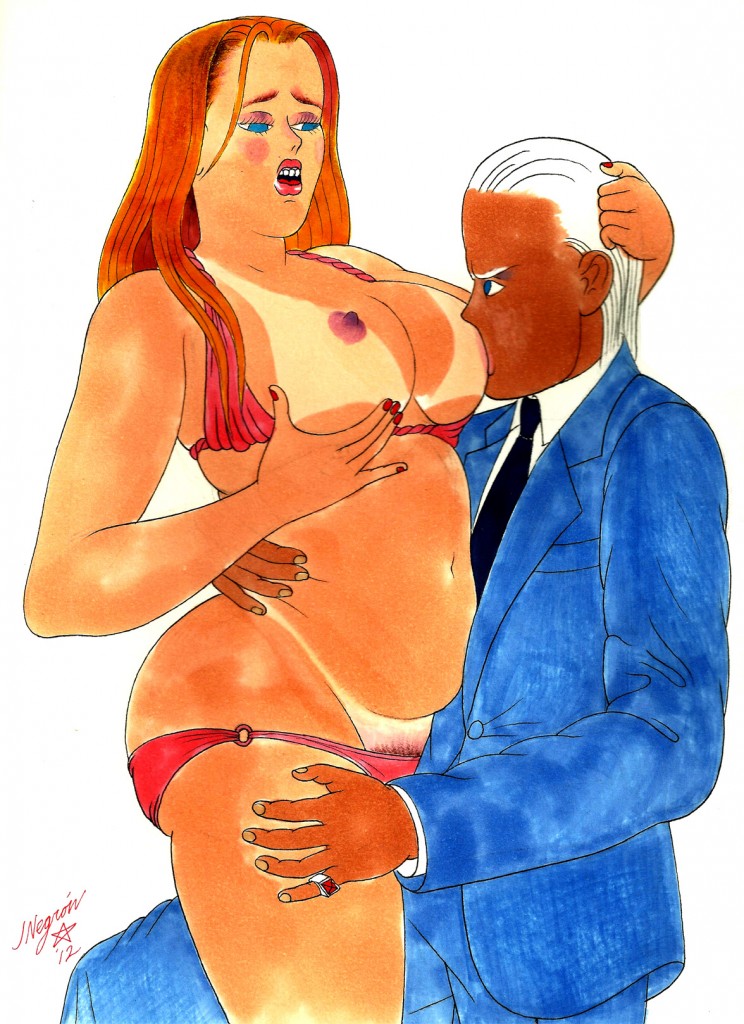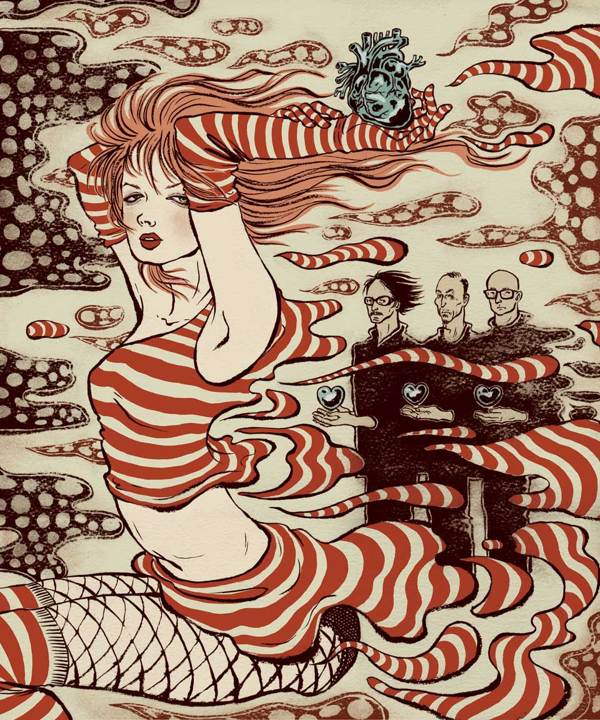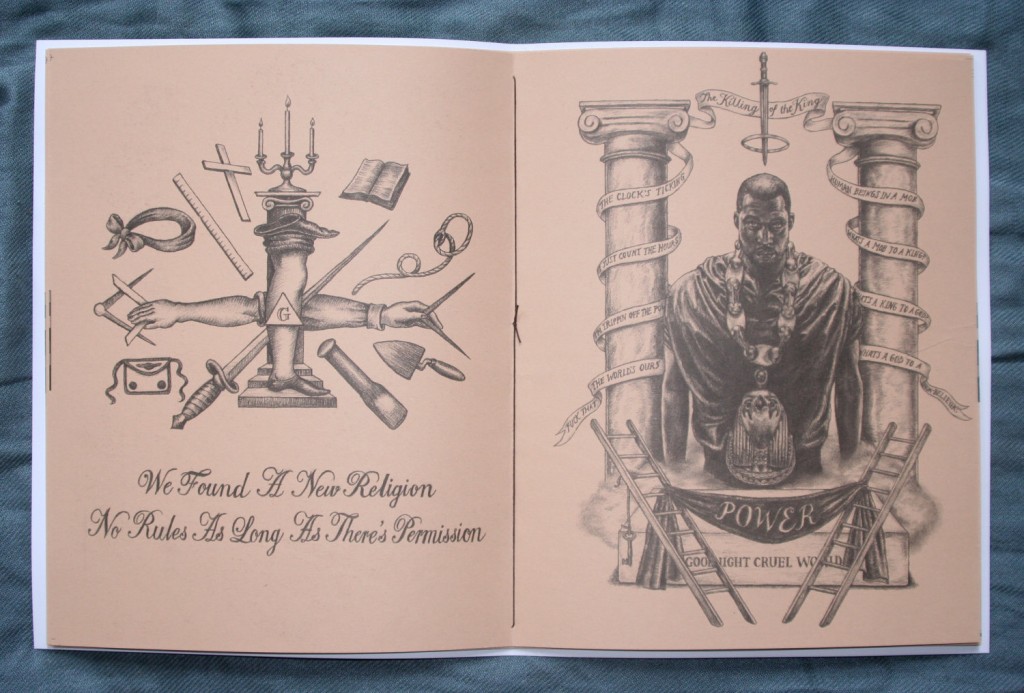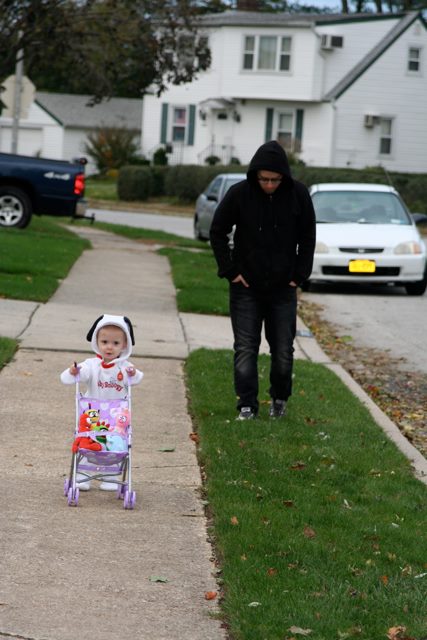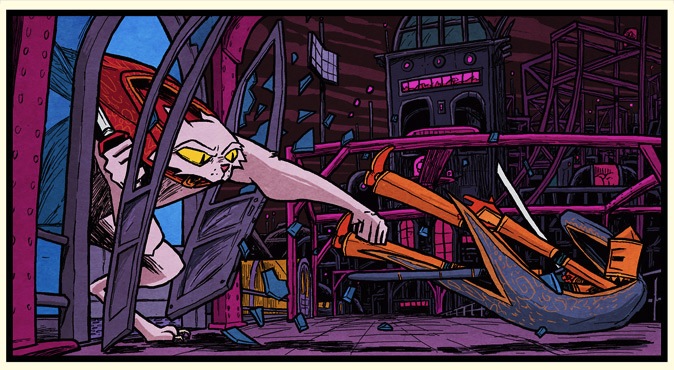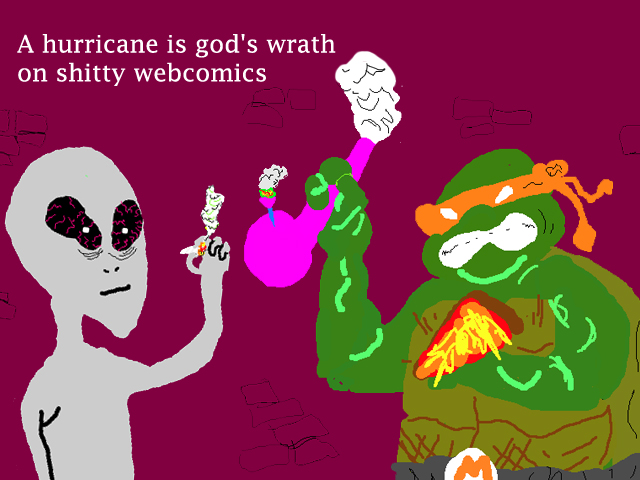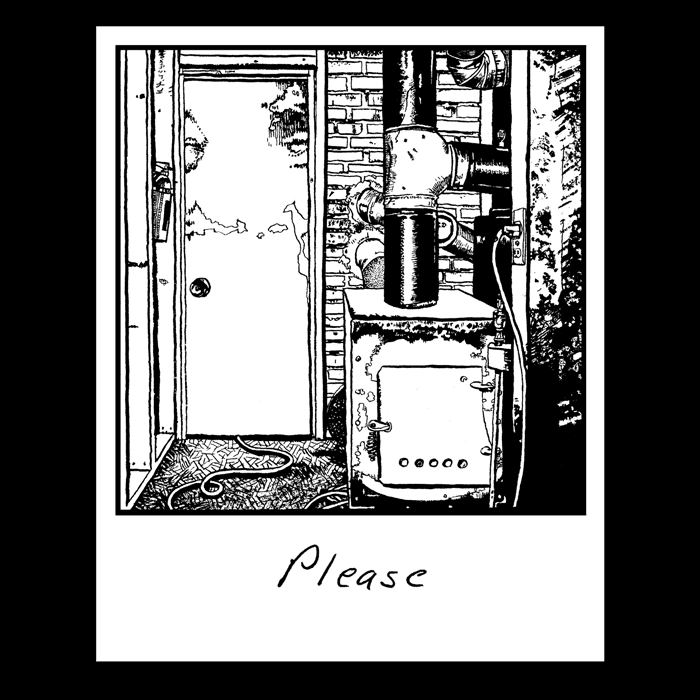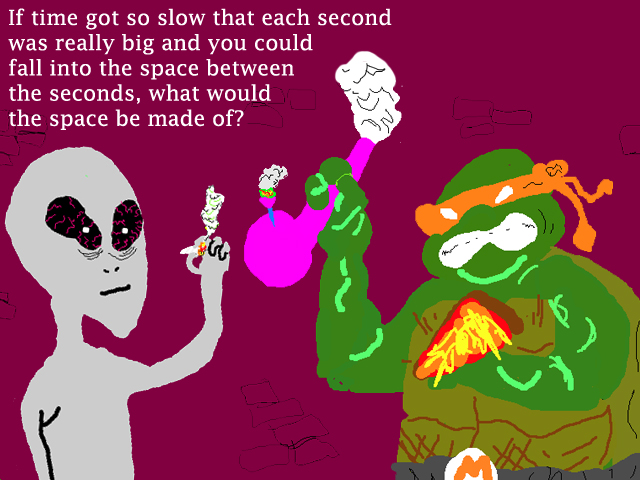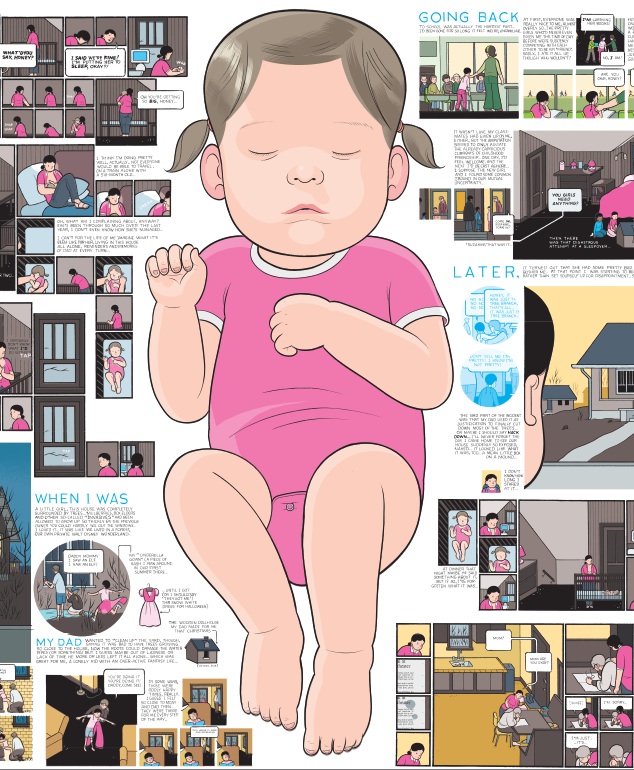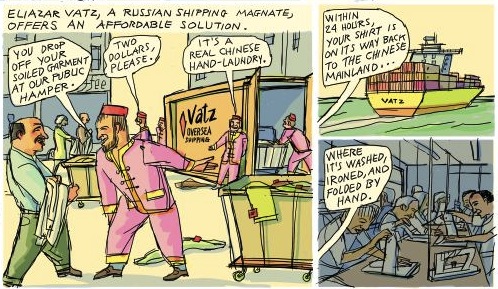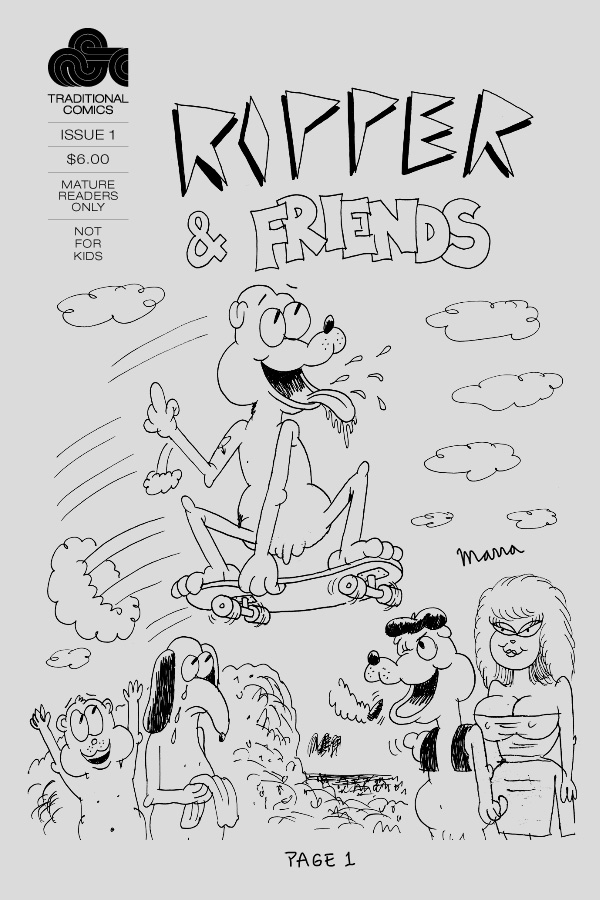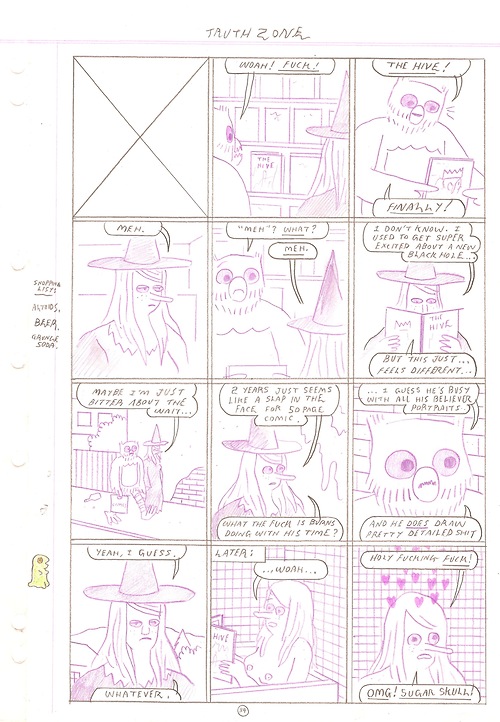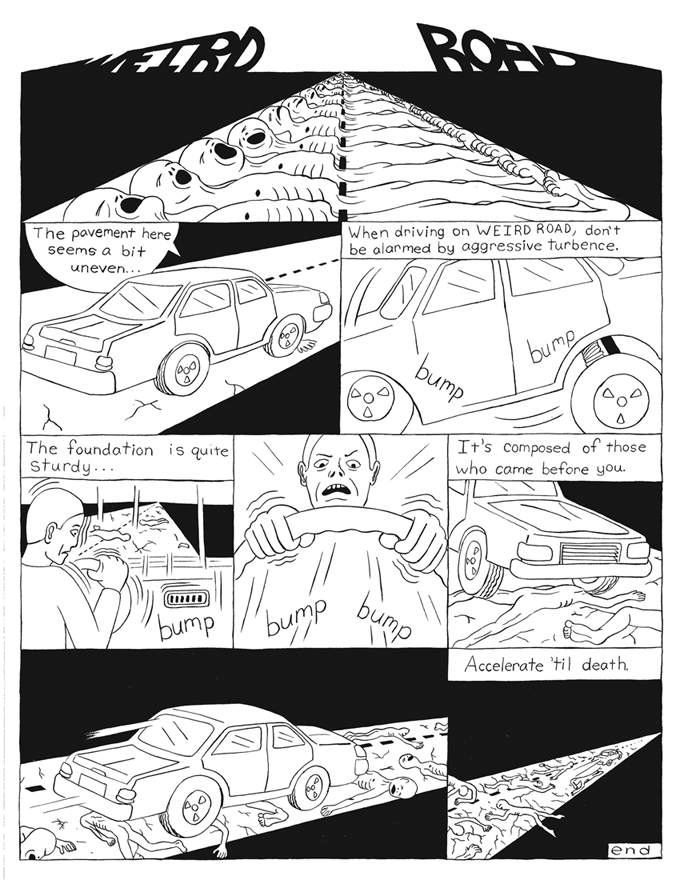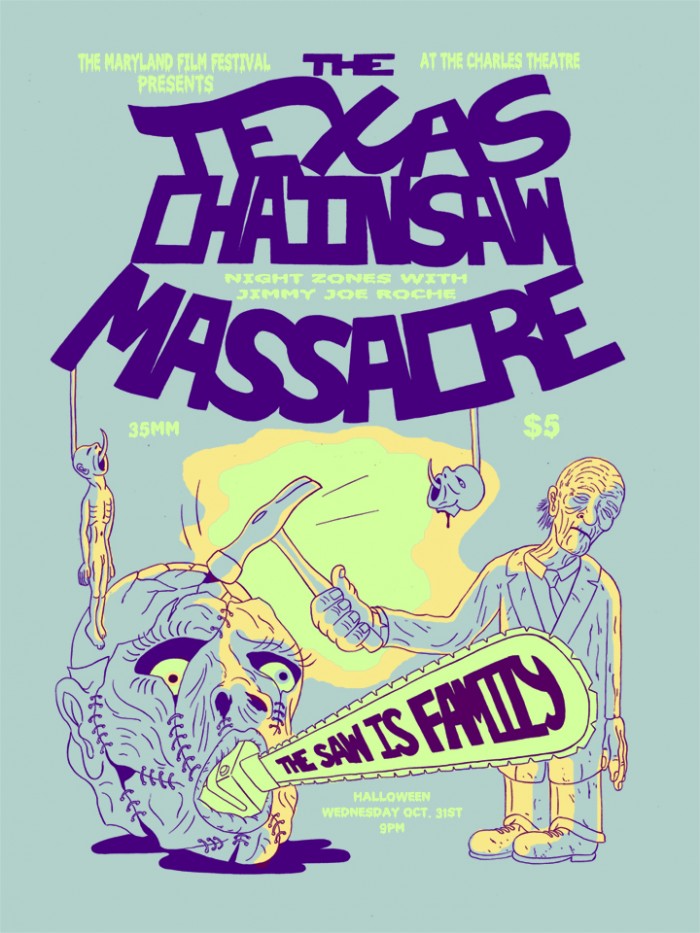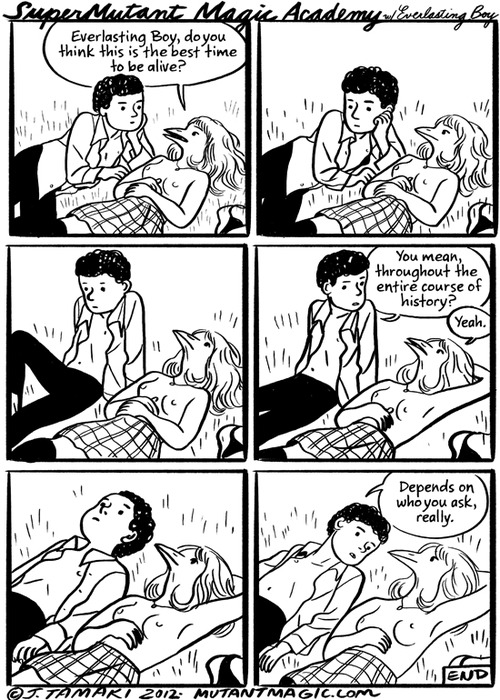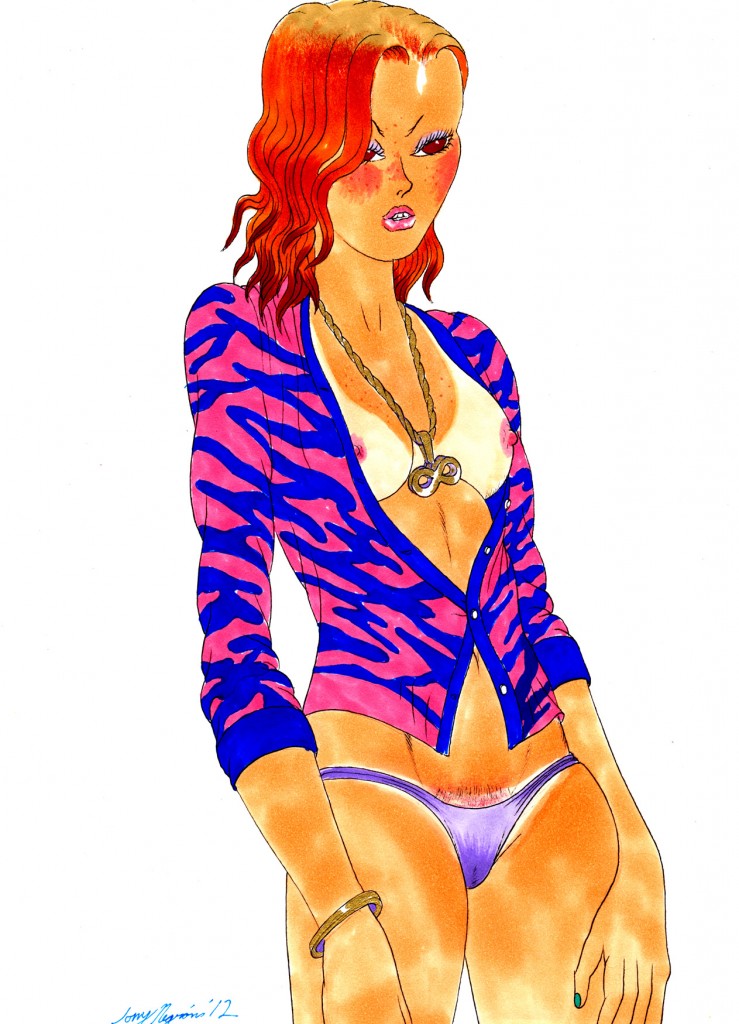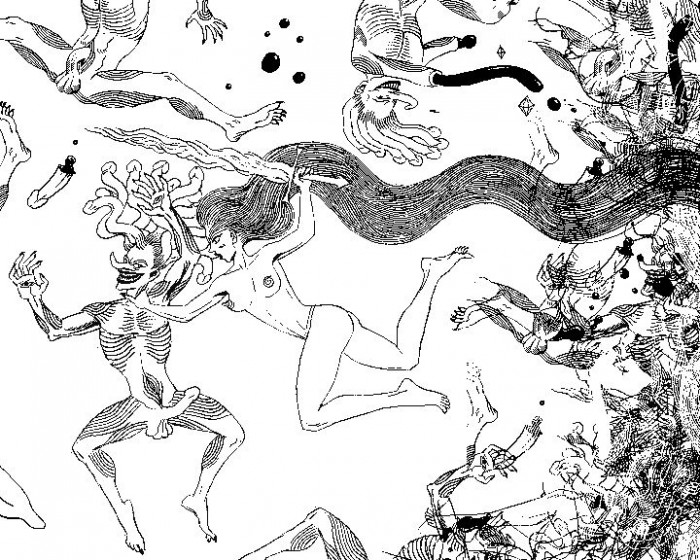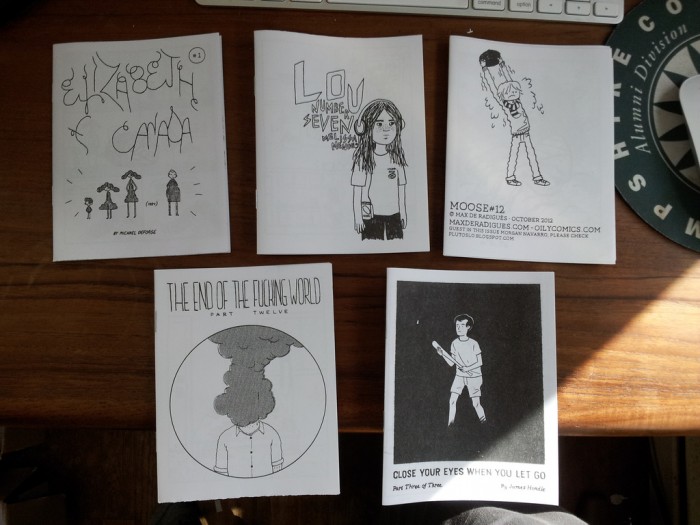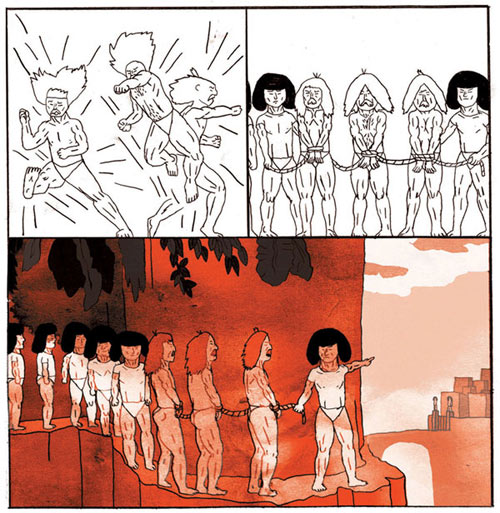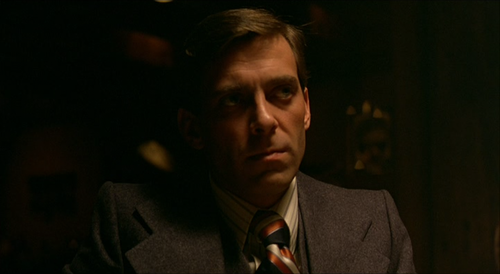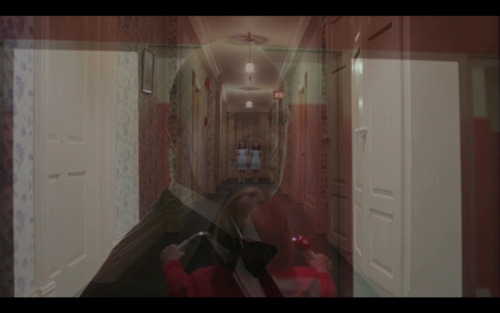I reviewed last night’s pretty silly Homeland episode for Rolling Stone. “NEE-KO-LASS” lol
“Boardwalk Empire” thoughts, Season Three, Episode Nine: “The Milkmaid’s Lot”
Last week’s thoughts today, again!
* “The man is on the phone. The gypsy.” Nightmare phrasing right there. This show is actually quite good at tipping reality juuust over into nightmare. In fact, now that I write that out, isn’t that what Nucky’s impairment following his concussion is all about? Giving his speech and thought process the non-sequitur, molasses-slow quality of the show’s dream sequences? I thought it was tremendously effective, placing him in a dimension just slightly alternate to reality like that.
* Actually, while we’re on the subject, isn’t that the point of Gyp Rosetti at this point as well? Gyp’s reality is obviously all too real to him — from what we’ve seen last week and this week he’s barely holding it together — but that surreal, unpredictable intensity makes him a nightmare figure to everyone else. The guy strode on to the beach to look on his works while wearing a tri-corner hat, for pete’s sake. If Nucky saw that he wouldn’t know if he was awake, asleep, or hallucinating.
* “I’ll wear that fucking dago’s guts like a necktie.” I wonder if it’s Margaret’s failure to get with the handsome liberal doctor that’s pushing her toward escaping her marriage to a murderous monster by running away with…the murderous monster’s chief enforcer. Maybe it’s just those smilin’ Irish eyes of his.
* Tommy’s an artist, just like his mother.
* Everyone at the Legion hall loves Richard. Whatever’s broken inside him, they don’t see it.
* I still think he’s Nucky’s endgame against Gyp, somehow.
* Enormously depressing, watching all the real-life gangsters wash their hands of Nucky. Depressing even though I know the basic contours of Joe Masseria’s career and thus could predict how this particular segment of it would shake out. Now, I suppose, we learn how well the show can manage building up real-world people into characters knowing full well they can only take them off the board at the appointed time.
Cat’s eye view
Page 20 of “Destructor Meets the Cats” has been posted. You can read the whole story so far on one continuously scrolling page by clicking here.
Carnival of souls: special post-BCGF edition
* The Brooklyn Comics and Graphics Festival was this past Saturday. I missed it because I was busy throwing a surprise 60th birthday party for my mom, which went great, thanks, but it’s still a bummer to miss the best comics show I’ve ever been to. Tom Spurgeon liked the show a lot; Robert Boyd did not. To this outside observer it appears the show has reached the “victim of its own success” tipping point, where those not favorably predisposed to attending or exhibiting may be turned off by increased overcrowding, venue issues and suchlike inherent to the show picking up steam from year to year that veterans and enthusiasts are more able to gloss over or ignore. But since the acknowledged strength of the show is its organization, in terms of presenting a thoughtful and rewarding selection of exhibitors, panels, satellite events, and special guests in order to entice attendees and make them feel glad they came, I’d imagine the organizers will be able to use that same intelligence to fix logistical problems. This isn’t something that could have been said for, say, the MoCCA Festival when it reached its own tipping point a few years back, since in retrospect that show did as well as it did because it was the first (and only) of its kind in the area. (For what it’s worth, they handled growth really well by expanding to two days and multiple floors in the original venue, the Puck Building, then really poorly by moving it to the Amory and not preparing at all for change. Obviously exhibitor relations left a lot to be desired as well.) Anyway, for an idea of what I missed, here’s what Leah Wishnia bought there. (Man, is that ever a BCGF haul photo!)
* Related: BCGF co-organizer Bill Kartalopoulos launched his Rebus Books imprint at the show.
* WHOSE RESPONSIBLE THIS? My friend Rob Bricken, bless his heart, is leaving Topless Robot, the caustic nerd-news site he created and edited since its inception, for a gig at io9. I got a lot of enjoyment out of what Rob did there over the years. In true Topless Robot fashion, Rob signed off by posting lists of his eight favorite listicles, five least and five most horrifying fan-fiction posts, and five favorite things about the site overall. I was always very very happy with the few things I wrote for TR, particularly the music posts.
* Eventually my current headlong retreat inside myself only to find I can barely stomach anything in there either will come to an end and I’ll read all the comics I have lying around. At that point I will then read the following reviews: Chris Mautner on Ron Régé Jr.’s The Cartoon Utopia and Theo Ellsworth’s The Understanding Monster. Katie Haegele on The Cartoon Utopia. Grace Krilanovich on Charles Burns’s The Hive. Marc Sobel interviewed Ellsworth, too.
* “Operation Vaporizer” by Jordan Speer is one of the best webcomics I’ve read all year, and I’ve read plenty.
* Jesse Moynihan’s Forming is delivering knockout after knockout.
* Mr. Freibert’s in a really good place with Weird Road right now.
* I’m always glad to see a new Conor Stechschulte comic — his Water Phase debuted at BCGF. No one textures pages like he does.
* Goodness, Space Face Books is a promising new publisher. I mean, it’s all but made good on its promise already. Forsman, DeForge, Hanselmann right out of the gate.
* When evaluating the recent work of Jonny Negron, please do not overlook the cementing of his signature style — meaning, literally, the style of his signature.
* Yuko Shumizu’s drawing of Shirley Manson from Garbage pretty accurately captures the appeal of Shirley Manson from Garbage.
* Carrie Battan’s article on the creation of indie-flavored pop music by Solange Knowles, Sky Ferreira, Charli XCX and others is a fascinating look at how some fairly tasty sausage gets made.
* Jessie Ware’s album Devotion has quickly become one of my favorites of the year. I’ll never not be a huge mark for sophisticated late-’90s dinner-party music, and this is that at both its most sonically refined and most emotionally raw. And my my my my my this video.
* Finally, it occurred to me I never linked to Meghan “Moneyworth” Garvey’s astonishing hip-hop Illuminati illustrations when she and I got in touch a few months ago. She’s great; they’re great.
“Homeland” thoughts, Season Two, Episode Seven: “The Clearing”
I reviewed tonight’s episode of Homeland for Rolling Stone. I’m probably a pretty tough sell on this show at this point.
“Boardwalk Empire” thoughts, Season Three, Episode Eight: “The Pony”
Last week’s Boardwalk Empire today! Sorry for the delay — I had a house full of hurricane refugees and time was short.
* Nice to know that you can have half a face and no ability to modulate the pitch of your voice and you can still say something like “Jimmy deserved better than this” and make it crystal clear what you really mean.
* Hey, Hymie Weiss is being played by Meadow Soprano’s fiancé Finn!
* Poor Van Alden, with that whiskey still pumping away amid his kids. That guy is like this weird swiffer cloth, attracting venality and corruption to him wherever he goes.
* Lotta laugh lines in this one:
Nucky’s man Friday: I am so sorry for your loss.
Nucky: Don’t be an idiot.
Nucky: That’s all you’re gonna give me?
Means: Rather more than you came in with.
And of course Esther’s line about running naked through the pages of the United States Criminal Code for fun.
* My notes for this ep, which all my notes for this show are starting to resemble, are basically a series of OMGs. “Jeeeeeesus that club Mellon’s in.” “Sheesh, that low-angle shot of Gillian pouring Nucky a drink.” “Gyp and Richard. Hoo boy.” “That fucking shot of Chicago.” A series of exciting things to see and think about.
* Margaret’s DTF.
* Capone puts on his hat realizing he’s the boss now, right? He is a weirdly lovable figure on this show.
* No question whatsoever that that asshole at the iron company was getting an iron in the face. You really have to admire how far the show went into the absurd with that whole sequence. They’re really making very little effort to either make Van Alden less of a mutant or to tie him into the prevailing tone of the rest of the show.
* The Billie situation was easy enough to see coming, particularly when we start getting her “just a small-town girl, livin’ in a lonely world” backstory. Ah well. Goodbye, Nadine Beckenbauer.
BCGF
I will not be at BCGF this weekend, but apparently an “Origin of Stoner Alien” minicomic I wrote will be, so keep your eyes peeled.
For the record
If you haven’t already, please go do what I plan to do in a few minutes and vote against Mitt Romney and Republicanism by voting for Democrats and Barack Obama. Thanks.
Aw, shoot
I can’t go to BCGF next weekend due to family obligations I’d totally forgotten about. If you are a person who plans to have books there that you would have wanted me to see, drop me a line and let me know how best to get ahold of them. If you are a person who just wanted to see me, maybe there’s some way we can get together earlier in the week?
Destructor vs. Stoner Alien
Page 19 of “Destructor Meets the Cats” has been posted. You can read the whole story so far on one continuously scrolling page by clicking here.
“Boardwalk Empire” thoughts, Season Three, Episode Seven: “Sunday Best”
* One thing Boardwalk Empire’s detractors miss is its sense of humor. To hear tell, you’d think it was a thing of leaden tough-guy self-seriousness. In reality it’s the kind of show that cold opens on a corrupt-cop ex-con skulking around his yard hiding what you think is evidence or weaponry, then reveals it to be Easter eggs.
* Another thing they miss — and somewhat more understandably, since the show’s undoubtedly too blustery in this regard from time to time — is how focused it is in delineating the violence its violent characters are capable of. This episode was a high water mark for two such portrayals, Richard and Gyp. We’ve learned over the course of the past couple seasons that Richard isn’t quite the dead-behind-the-eyes broken man who once proclaimed that people have no connection to each other. And in this season — this episode — in particular we’ve seen that there’s enough humanity left inside him for him to be genuinely sweet, protective, and even flirtatious, as opposed to a broken man attempting to recreate what that would be like, like Frankenstein’s monster tossing the little girl in the water. But man, when you trigger him, he is ready to go, the most compunctionlessly lethal man on the show. Listen to how he says “He hits you?” when he misinterprets his would-be girlfriend’s line about going at it with her father like prizefighters, or how he says with evident honesty that he’ll kill the guy if he doesn’t let go of Tommy. Richard’s capable of valuing certain individual lives, but that’s a choice he makes on an ad hoc basis. He does not feel that life has any inherent value. I wonder if his lady friend will realize that before it’s too late for her or someone she cares about — that his threat to kill her father wasn’t bluster at all.
* Meanwhile, I feel more and more confident about comparing Gyp to various Sopranos Bad Guys of the Season (I did that, right? I should have), because he’s becoming what dudes like Richie Aprile and Ralph Cifaretto and Phil Leotardo were — comically creepy funhouse-mirror versions of the protagonists’ more nuanced and tortured villainy. So now, on top of his erotic-asphyxiation fetish and wandering through a bloodbath with his dick out and a dog collar around his neck, we get that hilarious mama’s-boy staring match with his mom and the other ladies of the house, and mugging a priest for the poor-box money, and literally screaming at Jesus for not giving him any friends, and learning that his ill-fated attempt to spite Nucky for allegedly snubbing him cost him most of his territory at home, and just completely failing at convincing his boss he’s good for anything but maybe taking down a few of his enemies in a blaze of glory. So this is our answer to how Gyp could possibly have gotten as far as he did: dumb luck, which just ran out.
* Another point in the show’s favor? Its artiness, even when that artiness is self-conscious. Sure, that beautiful shot of the two Mrs. Thompsons as Margaret reveals Nucky’s infidelity, and Eli’s wife’s reaction to that revelation, were heavy-handed, but who cares? It was still a beautiful shot. Unnecessarily so, like the later shot of the flash going off when Richard gets his picture taken on the boardwalk.
* Pretty profoundly anti-war, this show: the patriotic music playing as Tommy discovers the dead son’s toy soldiers, the old man audibly weeping after he shuts himself in his son’s room. Oh jeez, that last bit.
* Remarkably uncomfortable filmmaking, all those lingering and sensual close-ups of Gillian’s hand washing her ersatz Jimmy’s body long after we’ve realized she intends him ill. Injecting him with an overdose of heroin came as a blessed relief compared to the trauma I figured she was about to inflict on that bare flesh.
* I’m glad, by the way, that there was a reason behind this murder, and that she wasn’t simply becoming some kind of Elizabeth Bathory/black widow psychopath.
* How do Richard, and Nucky, handle this obvious bullshit about Jimmy ODing? That’s my big question.
* Another question: In real life, we know that Gyp Rosetti doesn’t kill Arnold Rothstein, Lucky Luciano, Meyer Lansky, or Bugsy Siegel. How do they make his quest for vengeance on Masseria’s behalf suspenseful and able to hold its dramatic weight, then? I worry for Margaret’s kids, pretty much. I know I’m supposed to, that this threat has been hinted at for some time this season (giving the dead man’s dog to Margaret, the business with the gypsy man who burned the greenhouse, the son and his knife, the constant references to guards and Margaret asking Nucky whether they’d be in danger, etc.) and could therefore be a misdirect, but I do worry.
Scary
I’m very happy to say that Tom Spurgeon included three of my comics in his Halloween horror-comics blowout at The Comics Reporter yesterday: “The Real Killers Are Still Out There,” “A Real Gentle Knife,” and Cage Variations. If you haven’t read them before, and you’re still in a Halloween mood, and real life hasn’t been creepy enough for you lately, maybe now’s a good time.
“Boardwalk Empire” thoughts, Season Three, Episode Six: “Ging Gang Goolie”
Last week’s Boardwalk Empire thoughts today!
* That scene in the Legion Hall gave me that Barton Fink feeling. Not the movie Barton Fink, but a play written by the character Barton Fink — stagey, overearnest, and political, yeah, political! What a funny vibe to go for.
* Some marvelously weird framing in this one: Margaret dismissing her guard who can be seen only through a window on the opposite end of the frame; Billie entering her apartment as viewed from some weird angle on the staircase. Because why not?
* For some reason, the enormous height differences between the singing Boy Scouts made me laugh out loud. That whole scene had this off sense of humor — I love the idea of the thoroughly corrupt Harry Doherty protecting his less than useless old Boy Scout buddy at all costs.
* Amazing how gross and disturbing a mere spanking can be now, isn’t it?
* I was just wondering where the DA played by Julianne Nicholson went! Now we know. Glad to see her.
Stoner Alien: Q&A
The alien asks his turtle friend a couple of questions he’s not prepared to answer in the two installments of Stoner Alien I contributed today.
The Carnival of Souls Rides Again
* It’s wonderful that we’ve had going on two solid weeks of non-stop Chris Ware Building Stories talk on the comics internet, though it’s also sad that I haven’t participated in any of it because I haven’t had the time to read the book yet. (I know, I know, be the change you want to see in the comics internet, but it’s a lot easier in terms of time, energy, and attention to blow through a few chapters of an inconsequential Secret Avengers arc and suchlike in dribs and drabs over the course of a couple weeks than to sit down and work your way through a 14-chapter box set by your absolute favorite cartoonist.) Stuff I’ll certainly be checking in on once I’ve done my due diligence: The Comics Journal’s massive series of Building Stories essays; Joe McCulloch’s suggested reading order for the “book”‘s 14 individual volumes; Joe McCulloch, Chris Mautner, Tucker Stone, and Matt Seneca’s podcast about the book; and Douglas Wolk’s review for The New York Times.
* A judge just handed the family of Superman co-creator Joe Shuster a major defeat in their battle to reclaim the character’s copyrights from DC Comics and Warner Bros. It’s an ugly situation where a 1992 agreement made in large part for Shuster’s sister to receive an annual pension which in today’s dollars amounts to less than an assistant editor makes in exchange for her claims to a billion-dollar character that gave birth to an entire genre of fiction is now being used against her. Read the link above for the best explanation of what happened, then read Tom Spurgeon for impassioned analysis. As Tom always points out, DC/WB’s treatment of the Superman creators and their heirs is a choice, one they make anew every day, and one they could reverse whenever they wanted to. Individual people have decided they don’t want to.
* Ben Katchor’s satires of late capitalist society for Metropolis are merciless. Fun fact: He’s got a collection of these strips called Hand-Drying in America and Other Stories coming out in February 2013! That’s gonna be a beast.
* The AV Club talks to Los Bros Hernandez at length. I love hearing them talk about how they spurred one another to improve in the early Love and Rockets issues.
* Matt Fraction looks back on his fine tenure on Invincible Iron Man, which is just about to wrap up. That’s one of the best superhero runs of the past half-decade.
* Andy Serkis (Gollum, King Kong, Ian Dury) is directing an adaptation of George Orwell’s Animal Farm. That’s exciting.
* I came up with the topic for Tom Spurgeon’s latest Five for Friday reader-participation feature: Name five female comics-makers and their best male characters.
* Mostly music critic Brandon Soderberg interviews the great horror comics creator Josh Simmons. No one goes as far out as he does.
* Mostly music critic Tom Ewing reviews Sean Howe’s Marvel Comics: The Untold Story, the other big recent comics-related book release I haven’t read yet.
* My blogfather Bill Sherman reviews Courtney Taylor-Taylor and Jim Rugg’s odd Kraftwerk/Gang of Four/Bowie in Berlin/Baader-Meinhof Gang comic One Model Nation.
* Haw, Benjamin Marra made a trashy funny-animal comic called Ripper & Friends! This oughta be a hoot.
* Mr. Freibert has leveled up.
* Effortlessly sexy teenage dreams from Jillian Tamaki’s Supermutant Magic Academy.
* This is my favorite Jonny Negron piece of the last little while.
* An Uno Moralez work in progress.
* Let’s find out what’s going on with Charles Forsman’s Oily Comics line.
* This 14-page downloadable pdf comic by Olivier Schrauwen is beautiful.
* One of the best things about Matthew Perpetua’s BuzzFeed Music is that you get a lot more Matthew Perpetua music writing. Here he is on two wonderful albums of recent vintage, Godspeed You! Black Emperor’s ‘Allelujah! Don’t Bend! Ascend! and Bat for Lashes’ The Haunted Man. These both make for excellent late-October listens, if you’re interested in that sort of thing, though I’m more in an emotional place for the former, which features a 20-minute instrumental metal epic named after a Bosnian Serb war criminal, than the latter, the key lyrics of which include “Thank God I’m alive” and “Where you see a wall, I see a door.”
* Also on BuzzFeed Music: Jayson Greene’s harrowing essay about being ceaselessly bullied. As a newish parent this shit really gets to me now, more even than as a former bullying victim. I get to toss my daughter into this maw? Fucking terrific.
* Katherine St. Asaph digs deep into the rise and apparent fall of “Call Me Maybe” singer Carly Rae Jepsen, whose album Kiss is Kylie/Robyn-level delightful but not selling.
* I’m with Noz on the quasi-parody rap critic Big Ghostfase. The schtick is overwritten, more than a little condescending, and ultimately unrewarding.
* The best horror writing you’ll find this Halloween month comes from Matt Maxwell’s bite-sized posts on George A. Romero’s Dawn of the Dead, which are all illustrated by absolutely gorgeous screenshots. Here’s one of them.
* Someone played The Shining from front to back and back to front simultaneously and claims the overlaps are meaningful. They’re meaningful only by coincidence, but they’re beautiful coincidences.
* Plenty of good writing on last weekend’s terrific Homeland episode out there, if you’re in the market for it: Willa Paskin, Alyssa Rosenberg, Matt Zoller Seitz (he and I are really in sync on this season), Alyssa Rosenberg again.
* Vulture’s Gwynne Watkins profiles Elio García and Linda Antonsson from Westeros.org. Those two mean the world to me and I just love this profile.
* Kimberly Kane talks to Zak Smith and Mandy Morbid about art, sex, porn, polyamory, chronic illness, death, and true love for Vice. Provocative and moving.
* Mark Bowden writes very well about how the military-intelligence apparatus tracks down and kills enemies of the state — this was true in his absurdly engrossing Killing Pablo, about the rise and fall of Pablo Escobar, and it’s true in this lengthy Vanity Fair excerpt/adaptation of his new book about the death of Osama Bin Laden. That said, if you believe the bubbemeise offered up here that Barack Obama wanted to capture Bin Laden and try him in court, but the Navy SEALs called an audible on the ground, established a “shoot all adult males on sight” protocol all on their own, and plugged a wounded and unarmed Bin Laden in the head where lay despite the entire national security team’s express wishes to the contrary, I’ve got a fucking bridge to sell you.
* The justification of America’s drone-strike policy offered by TIME columnist Joe Klein as discussed in this Glenn Greenwald post is so soul-deadeningly horrifying, so sick even by the degraded standards of America’s normal discourse on this issue, that I thought it bore special mention.
KLEIN: “I completely disagree with you… . It has been remarkably successful” —
SCARBOROUGH: “at killing people” —
KLEIN: “At decimating bad people, taking out a lot of bad people – and saving Americans lives as well, because our troops don’t have to do this … You don’t need pilots any more because you do it with a joystick in California.”
SCARBOROUGH: “This is offensive to me, though. Because you do it with a joystick in California – and it seems so antiseptic – it seems so clean – and yet you have 4-year-old girls being blown to bits because we have a policy that now says: “you know what? Instead of trying to go in and take the risk and get the terrorists out of hiding in a Karachi suburb, we’re just going to blow up everyone around them. This is what bothers me… . We don’t detain people any more: we kill them, and we kill everyone around them… . I hate to sound like a Code Pink guy here. I’m telling you this quote ‘collateral damage’ – it seems so clean with a joystick from California – this is going to cause the US problems in the future.”
KLEIN: “If it is misused, and there is a really major possibility of abuse if you have the wrong people running the government. But: the bottom line in the end is – whose 4-year-old get killed? What we’re doing is limiting the possibility that 4-year-olds here will get killed by indiscriminate acts of terror.”
Tribalism at its most repellent; a willful rejection of empathy for other human beings, even children, with cruelty so casual it’s astonishing to behold.
* Klein should be quite excited to learn of the Obama Administration’s “disposition matrix,” a codification and systematization of pervasive surveillance and extrajudicial killing, conducted in secret and intended to become a permanent fixture of the executive branch. The object of power is power. Won’t it be fun to vote for these people anyway, because this election is like choosing between cancer and a less aggressive form of cancer?
* In happier news, I still like Beyoncé.
